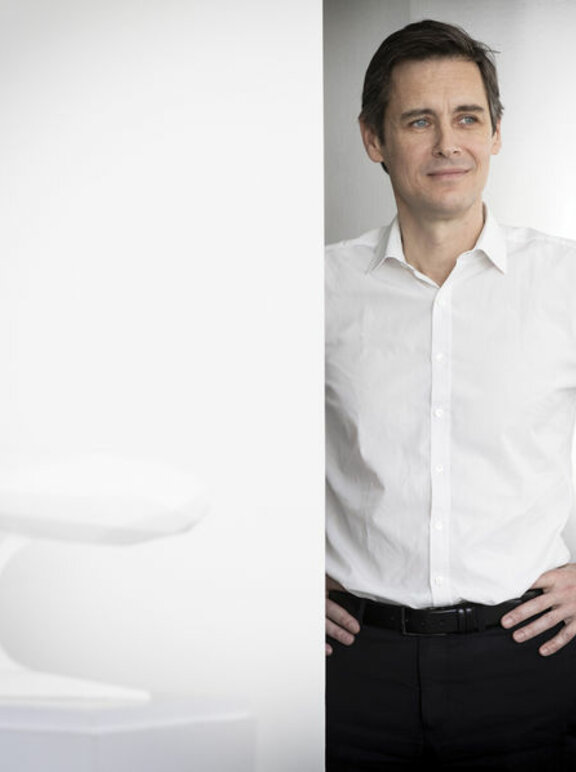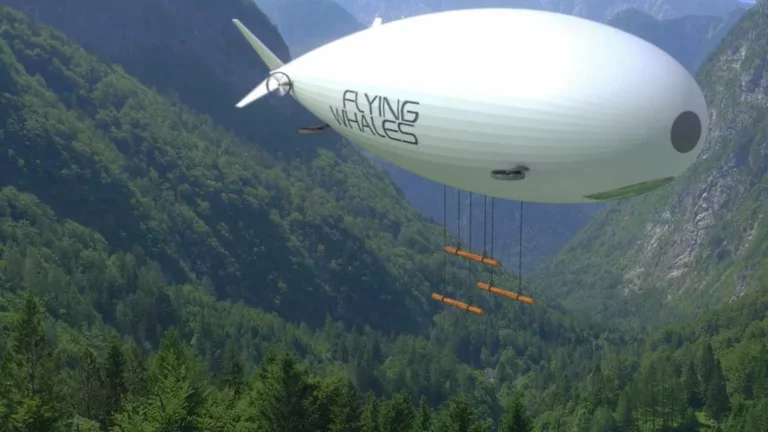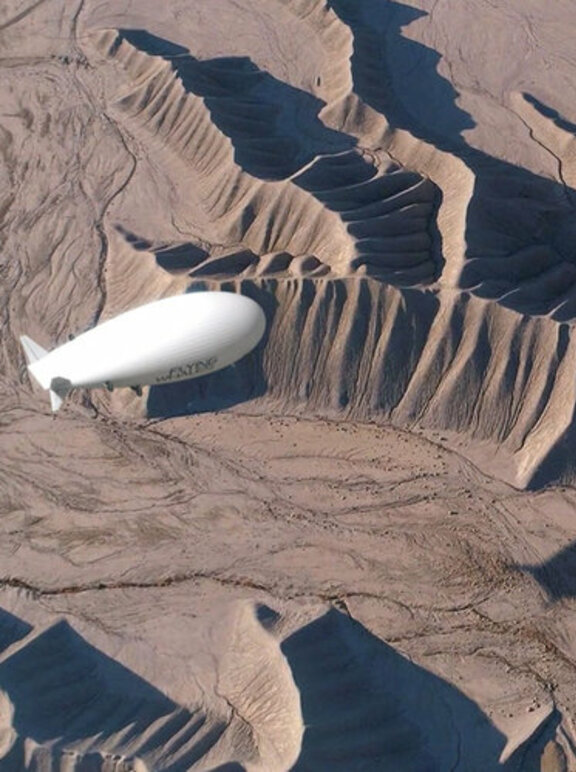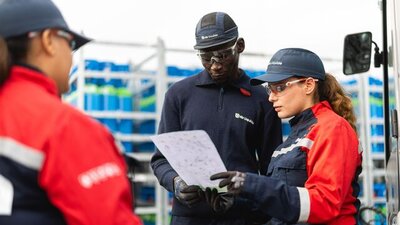Flying Whales has reinvented the airship, turning it into a greener solution for transporting heavy loads. ALIAD, the Venture Capital arm of the Air Liquide Group, acquired a stake in this young aeronautic start-up to help it take off.
Did you think the airship was a thing of the past? Think again. The company Flying Whales is determined to explore the technology's full potential. This innovative SMB designs airships that are able to transport up to 60 metric tons of goods at altitudes of close to 3,000 meters through hard-to-reach areas. "The project was launched in 2012 after a series of discussions with the Office National des Forêts (ONF—French National Forestry Office). The Agency thought the dirigible could be a viable solution for accessing certain under-utilized natural resources located in areas of the French territory that are difficult to access by truck, including the Alps, Corsica, and French Guiana. For example, airships could be used to collect tree trunks without impacting the ground by hovering above the site and loading and unloading cargo using cables," explains Romain Schalck, Market Manager at Flying Whales.
In addition to France, Canada (specifically the province of Quebec) and China, through its state-owned company AVIC (Aviation Industry Corporation of China), have also shown interest by investing in the project. Airships could be a solution for the future in countries with such vast expanses of territory. In Quebec, the subsidiary Flying Whales Québec was even founded. One of its main areas of focus will be to develop an operational and commercial roll-out plan for Canada and, more broadly, the United States.

“It makes sense to consult with the main stakeholder in this market, Air Liquide
”
Sébastien Bougon
CEO of Flying Whales
How is this partnership with Air Liquide important to your project?
How will your airships help advance the energy transition?
What deadlines are on your horizon?
An airship with a wide range of uses and advantages
Airships also provide an alternative to helicopters, which have to make several trips to transport the same amount of goods since they can only carry up to four metric tons. In addition to lumber, Flying Whales' airships could transport wind turbine blades or transmission towers and deliver them directly to the construction site.
They could also supply isolated communities, such as in the northernmost reaches of Canada. "We receive financial support from the government of Quebec, which is working to create a large-scale transportation ecosystem that includes several bases for our dirigibles," says Romain Schalk. This same type of system could later be rolled out in island areas, such as Indonesia or French Polynesia.
Transporting cargo sustainably with helium and hydrogen
The Flying Whales airship is also a solution of the future due to its low environmental impact. The dirigible, which will measure 154 meter long (the size of two Airbus A380s), 42 meter high, and 60 meter wide, will consume and emit 15 times fewer particles than a cargo helicopter. Another reason why airships are environmentally friendly is that they do not require any infrastructure, such as ports, roads, or landing strips, while they are operating. Dirigibles use helium, a nonflammable gas that is lighter than air, to take off without consuming fossil energy. "To travel, the first models will use a hybrid electric motor to operate the propellers. Our goal is to quickly switch to a fully electric system by using a hydrogen fuel cell that can be carried in the dirigible itself. This is one of the projects we are working on as part of our partnership with Air Liquide." The future dirigibles produced by Flying Whales will be the very first airships equipped with fuel cells.
A partnership with a bright future ahead
Through this collaboration, Air Liquide is helping to develop an innovative, ecological, and one-of-a-kind solution for goods transportation. ALIAD (Air Liquide Venture Capital), which is represented on the start-up's board of directors, connects Flying Whales to Air Liquide Global Markets and Technologies teams to foster cooperation on technological developments. "On an international scale, Flying Whales is a very promising project in this field and is backed by a very strong team," explains Nayla Merheb, Investment Director of ALIAD. "In addition, we can leverage a number of technological synergies with respect to the Group's projects." The partners are currently working on joint developments in three fields: managing gas propulsion systems, creating helium filtration membranes, and, potentially, designing fuel cells.



